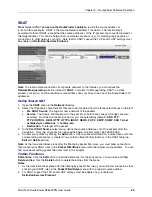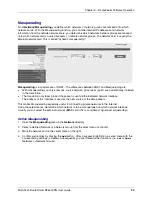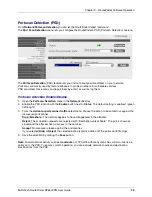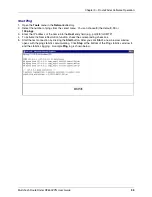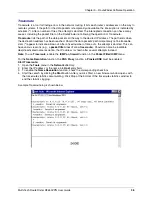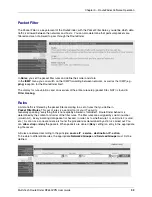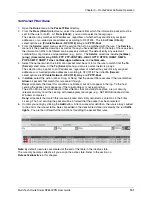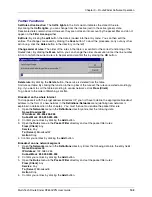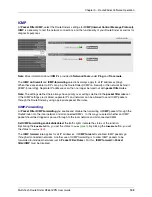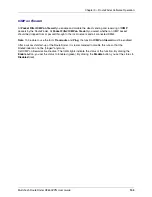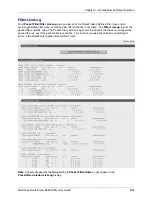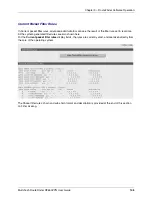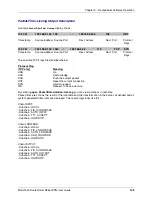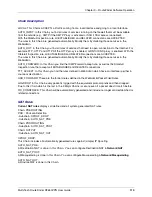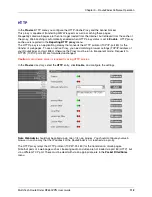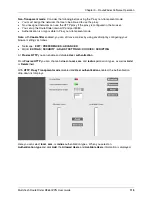
Chapter 3 – RouteFinder Software Operation
Multi-Tech RouteFinder RF650VPN User Guide
103
ICMP
At Packet Filter|ICMP, select the RouteFinder's settings for ICMP (Internet Control Message Protocol).
ICMP is necessary to test the network connections and the functionality of your RouteFinder as well as for
diagnostic purposes.
Note: More information about ICMP is provided in Network|Tools under Ping and Traceroute.
The ICMP on firewall and ICMP-forwarding selections always apply to all IP addresses (Any).
When these are enabled, all IPs can ping the RouteFinder (ICMP on firewall), or the network behind it
(ICMP-forwarding). Separate IP addresses can then no longer be ruled out with packet filter rules.
Note: The settings defined here always have priority over settings defined in the packet filter rule set.
If the ICMP settings are disabled, separate IPs and networks can be allowed to send ICMP packets
through the RouteFinder by using appropriate packet filter rules.
ICMP-Forwarding
At Packet Filter|ICMP-forwarding you enable and disable the forwarding of ICMP packets through the
RouteFinder into the local network and all connected DMZs. In this way you select whether an ICMP
packet should be dropped or passed through to the local network and all connected DMZs.
Set ICMP-forwarding enabled/disabled: the traffic lights indicate the status of the function.
By clicking the
Enable
button, you set the status to
Active
(
green
). By clicking the
Disable
button, you set
the status to
Inactive
(
red
).
The ICMP forward rule applies for all IP addresses. If ICMP forward is enabled, ICMP packets go
through all connected networks. Another use of ICMP forwarding is to allow ICMP packets to be
forwarded to individual networks (set in Packet Filter|Rules). For this, ICMP forward in Packet
filter|ICMP must be disabled.

